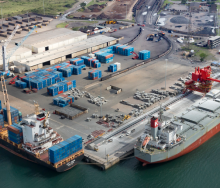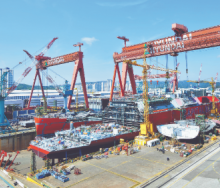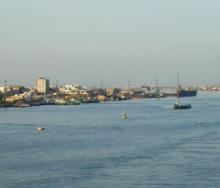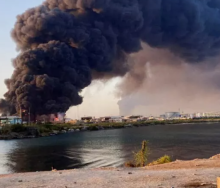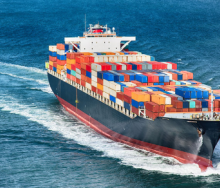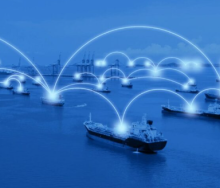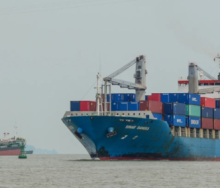A year after authorities in Mauritius arrested the captain and members of the crew of the Japanese ship Wakashio that ran aground on a coral reef and spilled 1 000 tons of oil on the Indian Ocean island’s protected coastline, they remain effectively detained without charge.
The Wakashio ran aground on July 25 – and after being pounded by heavy waves for several days, the vessel cracked and started leaking oil on August 6.
David Heindel, Seafarers’ Section chair of the International Transport Workers’ Federation (ITF) said the organisation and its affiliated seafarers’ unions had “deep concerns” about the treatment of the crew of the Wakashio by Mauritian authorities and had called for the support of the President of the Republic of Mauritius, Prithvirajsing Roopun, to speed up legal proceedings and the expeditious conclusion of the now-year-long saga faced by the crew.
“The ITF supports thorough, independent investigations of the factors relating to any maritime incident, including those that may have affected the grounding of the Wakashio. In this instance, we are concerned about the lack of appropriate legal proceedings taking place regarding the Wakashio crew.”
Following the grounding of the vessel, Captain Sunil Kumar Nandeshwar and Chief Officer Tilakaratna Subodha were arrested by Mauritian authorities. On August 18, 2020 they were charged with endangering safe navigation. The pair have been detained in prison since their arrest and have been denied bail. Most of the remainder of the crew have been detained under “house arrest” and kept in a local hotel, seemingly on the grounds that they may be required to appear as witnesses in a trial that has yet to commence.
The ITF points out that the crew have not been charged with any offence, yet they are still not free to leave Mauritius. “As a consequence, some of these seafarers have not seen their families for more than two years. This is because, prior to the maritime accident in July last year, some of the crew had already been on board the vessel in excess of 12 months – beyond the legal limit set by the Maritime Labour Convention (2006, as amended).”
Heindel said that while the Wakashio accident was “deeply unfortunate”, with the ITF sharing concerns about the impact of the accident on the ocean environment, the federation could not “stand by and allow what appears to be an example of criminalisation of seafarers”.
He added that criminalisation of seafarers was on the rise. “Whether it is felt by the crew of the Wakashio who were effectively detained without charge, or the drawn-out threat of criminal charges against the Ever Given crew to bolster the Suez Canal Authority’s negotiating position over damages, seafarers are being cynically targeted all over the world by officials just for doing our jobs,” said Heindel.
“We know that seafarers are seen by some officials as convenient bargaining chips in efforts to hold shipowners to account for maritime accidents caused by issues like a lack of maintenance. This is especially the case when a state finds it difficult to locate and prosecute irresponsible shipowners who too often hide behind the Flag of Convenience system.
“But the solution to irresponsible shipowners ducking accountability for maritime accidents is not to hold seafarers hostage, but rather to reform the Flag of Convenience system and abolish the secrecy protections which allow anonymity and evasion,” said Heindel.




